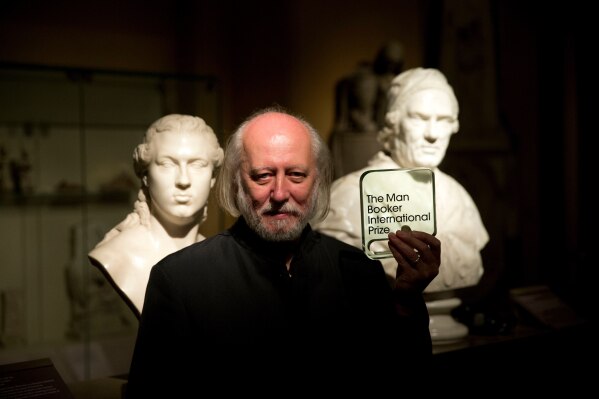Int'l Correspondent
Published:2025-10-09 19:28:31 BdST
Krasznahorkai wins Nobel Prize in Literature
Hungarian writer Laszlo Krasznahorkai won the 2025 Nobel Prize in Literature, the award-giving body said on Thursday, "for his compelling and visionary oeuvre that, in the midst of apocalyptic terror, reaffirms the power of art".
"Laszlo Krasznahorkai is a great epic writer in the Central European tradition that extends through Kafka to Thomas Bernhard, and is characterised by absurdism and grotesque excess," the Academy said in a statement.
"But there are more strings to his bow, and he also looks to the East in adopting a more contemplative, finely calibrated tone."
Second Hungarian to win Nobel Literature Prize
The second Hungarian to win the prize, awarded by the Swedish Academy, after Imre Kertesz in 2002, Krasznahorkai was born in the small town of Gyula in southeast Hungary, near the Romanian border.
His breakthrough 1985 novel, Satantango, is set in a similarly remote rural area and became a literary sensation in Hungary.
"The novel portrays, in powerfully suggestive terms, a destitute group of residents on an abandoned collective farm in the Hungarian countryside just before the fall of communism," the Academy said.
Krasznahorkai had a close creative partnership with Hungarian filmmaker Bela Tarr. Several of his works have been adapted into films by Tarr, including "Satantango" and "The Werckmeister Harmonies".
Their collaboration has garnered critical acclaim. In 1993, he received the German Bestenliste Prize for the best literary work of the year for The Melancholy of Resistance.
Literature the fourth Nobel Prize of 2025
Established in the will of Swedish dynamite inventor and businessman Alfred Nobel, the prizes for achievements in literature, science and peace have been awarded since 1901.
Past winners of the 11 million Swedish crowns ($1.2 million) literature prize include French poet and essayist Sully Prudhomme, who bagged the first award, American novelist and short story writer William Faulkner in 1949, Britain's World War Two Prime Minister Winston Churchill in 1953, Turkey's Orhan Pamuk in 2006 and Norway's Jon Fosse in 2023.
Last year's prize was won by South Korean author Han Kang who became the 18th woman - the first was Swedish author Selma Lagerlof in 1909 - and the first South Korean to receive the award.
Over the years, the choices made by the Swedish Academy have drawn as much ire as applause.
In 2016, the award to American singer-songwriter Bob Dylan sparked criticism that his work was not proper literature, while Austrian Peter Handke's prize also drew criticism in 2019.
Handke had attended the funeral in 2006 of former Yugoslav President Slobodan Milosevic, seen by many as responsible for the deaths of thousands of ethnic Albanians who were killed in Kosovo and the displacement of almost 1 million others during a brutal war waged by forces under his control in 1998-99.
Prizegivers have also in the past been accused of being snobbish, of having an anti-American bias and of ignoring some of the giants of literature, including Russia's Lev Nikolayevich Tolstoy, France's Emile Zola and Ireland's James Joyce.
Unauthorized use or reproduction of The Finance Today content for commercial purposes is strictly prohibited.


